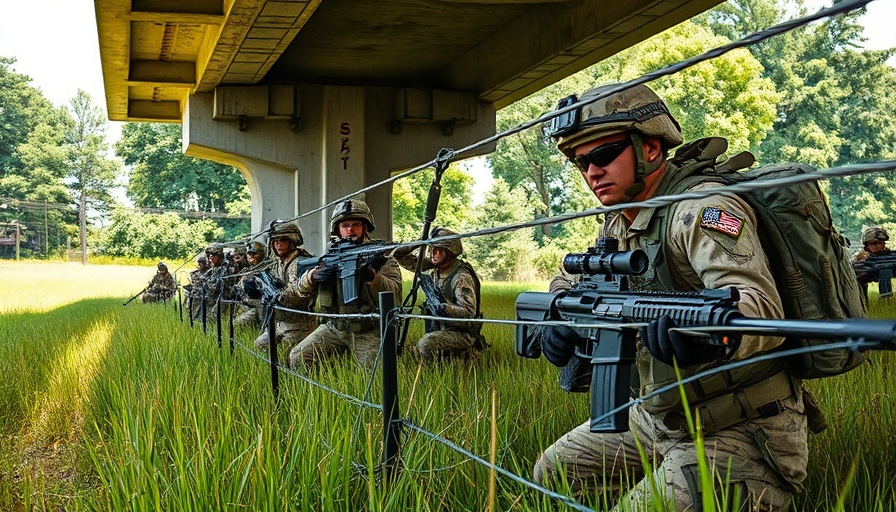
Historic U.S.-Mexico Military Cooperation Under Trump
The recent agreement between the U.S. and Mexican militaries for coordinated border patrols signifies a historic collaboration aimed at addressing illegal immigration and drug trafficking. Under the leadership of President Trump, this initiative builds on strategies that have reportedly seen significant drops in illegal crossings since 2016. The partnership involves enhanced information sharing and established channels for immediate communication, marking a pivotal moment in U.S.-Mexico relations.
The Role of Military Coordination
This agreement isn’t simply a straightforward military initiative; it's a multifaceted approach to enhance border security. Military commanders from both countries articulated that troops will operate on their respective sides of the Rio Grande. Furthermore, sharing intelligence on dangerous substances like fentanyl is crucial, especially given the rising overdose deaths in the U.S., which have been tied to drug trafficking across the border.
Impacts on National Security
Significantly, this collaboration aims to target Mexican drug cartels directly, addressing a major concern outlined in the agreement. The escalating violence associated with these cartels necessitates that both nations adopt a proactive stance. The release of U.S. troops to reinforce border operations is not only a strategic shift but also a strong message about the U.S. commitment to national security.
A Change in Bilateral Relations
The announcement holds broader implications for future U.S.-Mexico relations. Just weeks after President Trump threatened tariffs aimed at Mexico unless it acted to curtail illegal immigration, Mexican President Claudia Sheinbaum quickly mobilized National Guard troops to support these efforts. Such rapid response suggests a willingness from both sides to enhance cooperation in combating shared challenges.
What Lies Ahead?
Moving forward, the effectiveness of this military collaboration will hinge on sustained dialogue and ongoing commitment from both nations. Analysts predict that if successful, this partnership may set a precedent for increased military collaborations in other regions facing similar issues. As the situation evolves at the U.S.-Mexico border, this agreement is a step that may reshape how both nations manage border security in years to come.
 Add Row
Add Row  Add
Add 




Write A Comment